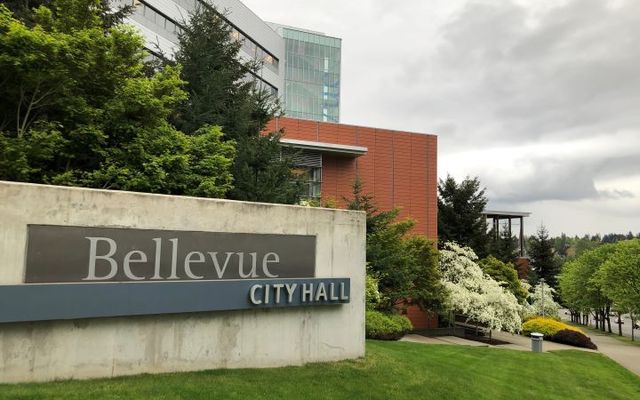
Plus, new guidelines for Arts Grants Program and action on potential opioid settlements
On Monday, the City Council voted to initiate work on the next phase of affordable housing creation through Bellevue’s Affordable Housing Strategy C-1, which is focused on “increasing development potential on suitable land owned by public agencies, faith-based and non-profit housing entities for affordable housing.”
In December 2021, the city paved the way for furthering progress through Action C-1 by enacting a Land Use Code Amendment providing a 50% density bonus for affordable housing developed on faith-based, non-profit or publicly owned property. The next phase of work will identify eligible target areas for further affordable housing capacity and work with the community and other stakeholders to determine specific density targets.
The city created an initial geographic map showing more than 20 sites in the city that could qualify for increased affordable housing capacity if an appropriate land use code amendment was established. The identified sites meet certain criteria such as being located on main arterials and near frequent transit and those sites in single family land use districts that are near land use districts where multifamily housing is permitted.
Councilmembers unanimously voted to move the work forward. A Comprehensive Plan Amendment proposal using all input collected would go before the Planning Commission for consideration and recommendation to council. After that, applicable Land Use Code Amendments or rezones would be developed for action in 2023.
More details on the work are available in the meeting materials.
In other business related to Bellevue’s affordable housing work, the council voted unanimously to authorize $32,200 in funds for the LEO at Trailhead affordable housing project through A Regional Coalition for Housing, or ARCH. The total cost split among ARCH partner cities is $250,000. The project will be a five-unit complex serving community members who make less than 30% of the Area Median Income.
New guidelines for city’s Arts Grants Program
During an update to the city’s arts and culture program, councilmembers approved new guidelines to guide the city’s Arts Grants program, which is expected to serve more than a million residents and visitors through arts events and education in 2022 and provide more than 16,000 scholarships to participate in arts education.
In addition to guidelines that ensure equitable access by streamlining the application process, center underserved communities, assess and serve current needs of the community, look to activate the BelRed Arts District through arts grants incentives and explore multi-year work to help streamline the work entailed to apply, the work also proposed restructuring the grant program. Grant categories will be streamlined from three to two, with opportunities for bonus grants focused on reaching underserved communities and to activate the up-and-coming BelRed Arts District.
The guidelines will be translated into six languages and the city will complete outreach to the arts community to publicize grant opportunities starting in August. More information on the Arts and Culture biennial update and the Arts Grants Program action are in the meeting materials.
Bellevue joins with other local governments on potential opioid settlements
In response to the national opioid epidemic, a number of counties and cities in Washington state filed lawsuits against various manufacturers and distributors of prescription opioids. The goal is to recover financial damages sustained by local governments as a direct result of the highly addictive drugs. Some opioid manufacturers and distributors have expressed an interest in resolving not only these lawsuits but also potential claims that could be brought by counties and cities in the future. Bellevue has not filed its own lawsuits but could benefit from such settlements.
The council unanimously agreed to execute the One Washington Memorandum of Understanding Between Washington Municipalities, which provides the agreement and framework for any future financial settlements. More detail can be found in the meeting agenda materials.
Source: City News

Recent Comments